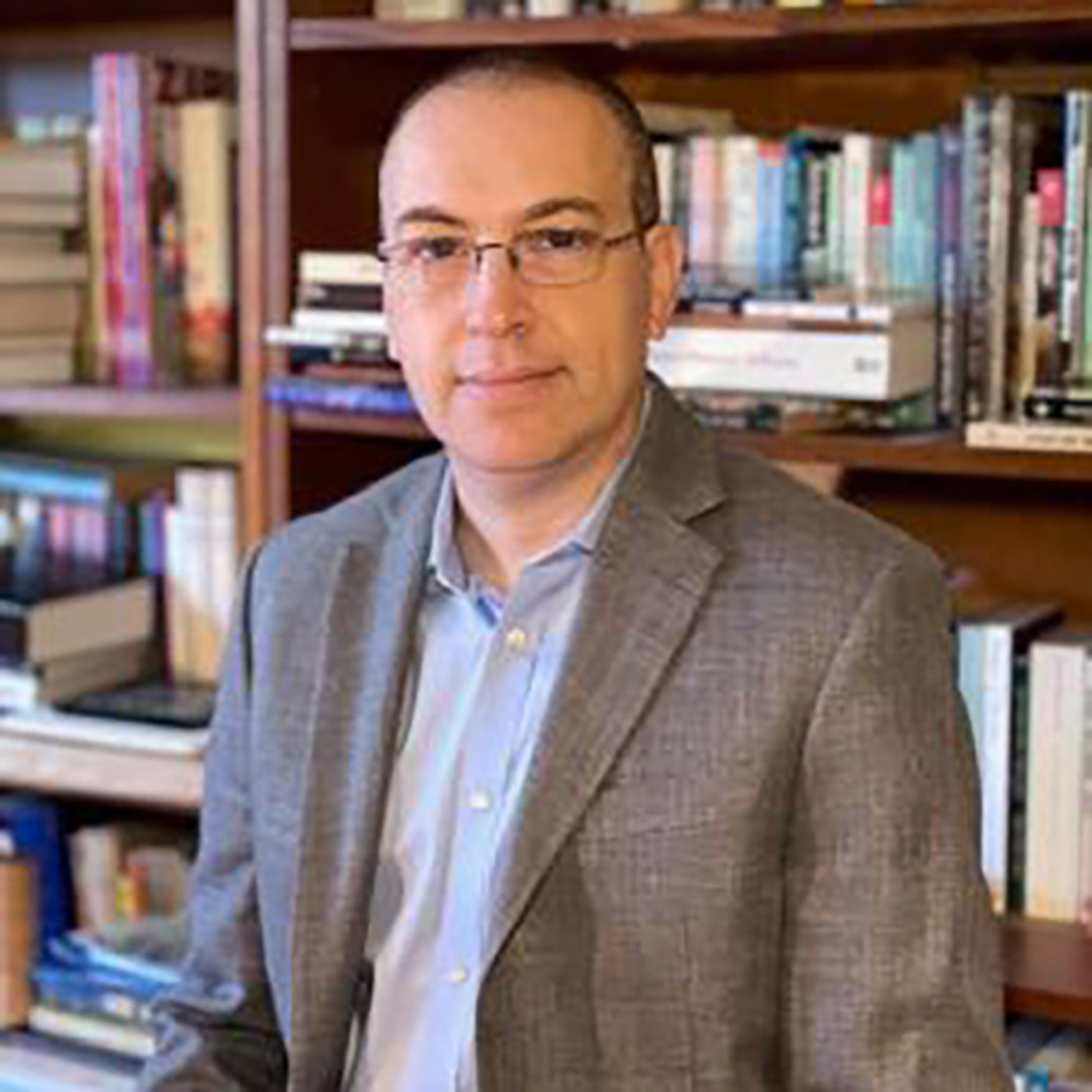Yiddishism and Humanism in the Twentieth Century

|
Yiddish Civilization Lecture Series
Admission: Free |
Kenneth B. Moss | Delivered in Yiddish.
“And I, as one who writes […] according to his spiritual situation when he picks up his pen – I take from all the worlds together.” Thus wrote Y. L. Peretz to Sholem Aleichem in 1888, in what might be called Yiddish literature’s declaration of independence – the idea that modern Yiddish culture could meet all the intellectual and spiritual needs of the capacious modern self if it was given full freedom to develop on its own terms, free of confining expectations. Yet as Peretz pursued this vision of cultural freedom, he also wrestled ceaselessly with the felt obligations to the Jewish folk and to the larger, broken social world that had brought him to Yiddish in the first place.
This lecture traces how four generations of Yiddish writers and cultural creators, from Peretz to the “1905 generation” of Yiddishist activists in Vilna and Kiev, to the interwar generation from Anna Margolin to Kadya Molodowski and Itsik Manger, to Arn Glants-Leyeles and Avrom Sutzkever before and after the Holocaust, negotiated this defining tension as it grew ever stronger – as the vision of a Yiddish secular culture that could offer wholeness and creative freedom to the Jewish individual confronted burning questions of Jewish national self-help, imperatives of social transformation, the intimate question of how to transmit this culture to children, and ultimately the Holocaust’s overwhelming imperative of mourning.
דער ייִדישיזם און דער הומאַניזם אין 20סטן י"ה
„און איך, װי איינער וואָס שרײַבט לויט זײַן געמיט אין דעם מאָמענט ווען ער הייבט די פֿעדער – איך נעם פֿון די אַלע װעלטן צוזאַמען." אַזוי האָט געשריבן י.־ל. פּרץ צו שלום־עליכמען אין 1888. דאָ אין דעם בריװ זעט מען די ערשטע שפּראָצן פֿון דער אידעע, אַז די מאָדערנע ייִדישע קולטור װאָלט געקענט באַפֿרידיקן די אַלע גײַסטלעכע און אינטעלעקטועלע באַדערפֿענישן פֿון דעם מאָדערנעם, װעלטלעכן איך, װען נאָר זי זאָל האָבן די מעגלעכקײט זיך צו אַנטװיקלען פֿרײַ, אָפֿן, אָן אידעאָלאָגישע לאַסטן. נאָר פֿון סאַמע אָנהייב האָט פּרץ נישט געקענט אויפֿהערן זיך צו ראַנגלען מיט טיפֿע און דרינגענדיקע אַחריות־געפֿילן – אַחריותן צום פֿאָלק און צו דער װעלט, די אַחריותן װאָס האָבן אים צוגעקירעװעט צו ייִדיש אַליין.
דער אָ רעפֿעראַט װעט באַקענען דעם ברייטערן עולם מיט די ריכטליניעס פֿון דער עיקרדיקער דראַמע פֿון דער מאָדערנער ייִדישער קולטור: װי פֿיר דורות שרײַבער און שאַפֿער, פֿון פּרץ איבער דעם ערשטן דור פֿאַרברענטע יידישיסטן אין װילנע און קיעװ, איבער אַננאַ מאַרגאָלין און איציק מאַנגער צװישן די מלחמות ביז אַהרן גלאַנץ־לעיעלעס און אַבֿהרם סוצקעװער פֿאַר און נאָכן חורבן, האָבן זיך געראַנגלט מיט דער אָ עצמדיקער, פֿאָרעם־געבנדיקער שפּאַנונג צווישן פֿרײַהײט און אַחריות אונטער באַדינגונגען וואָס האָבן די שפּאַנונג אַלץ מער פֿאַרשטאַרקט – אונטער דעם דרוק פֿון ברענענדיקע פֿראַגעס פֿון פֿאָלקס־גורל און סאָציאַלער גערעכטיקײט; אונטער דעם דרוק פֿון אינטימע פֿראַגעס פֿון דערציִען קינדער װאָס זאָלן זײַן אָפֿן צו דער װעלט נאָר געטרײַ צו ייִדיש; און, סוף־כּל־סוף, אונטער דעם אומדערטרעגלעכן דרוק פֿון דער חורבן־קאַטאַסטראָפֿע פֿון ייִדישן פֿאָלק און ייִדיש גופֿא מיט איר אײַזערנער באַפֿעל אַז די ייִדישע ליטעראַטור זאָל װערן אַ ליטעראַטור פֿון אַבֿלות.
About the Speaker
Kenneth B. Moss is the Harriet and Ulrich E. Meyer Professor of Jewish History at the University of Chicago. He is the author of An Unchosen People: Jewish Political Reckoning in Interwar Poland (Harvard University Press, 2021) and Jewish Renaissance in the Russian Revolution (Harvard University Press, 2009). With Ben Nathans and Taro Tsurumi, he coedited From Europe’s East to the Middle East (UPenn, 2021) and with Israel Bartal, he is co-editing volume 7 of the Posen Library of Jewish Culture and Civilization: National Renaissance and International Horizons, 1880–1918 (Yale University Press, forthcoming). From 2014 to 2020, he coedited Jewish Social Studies.




